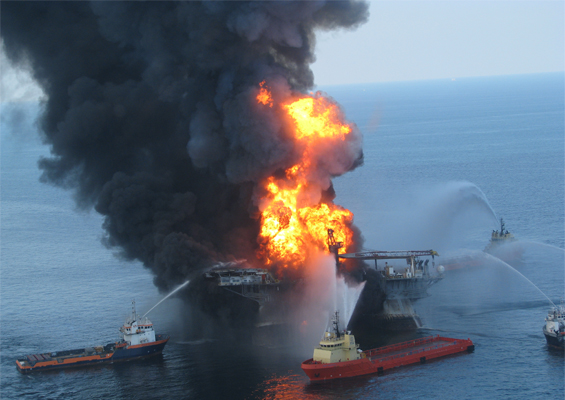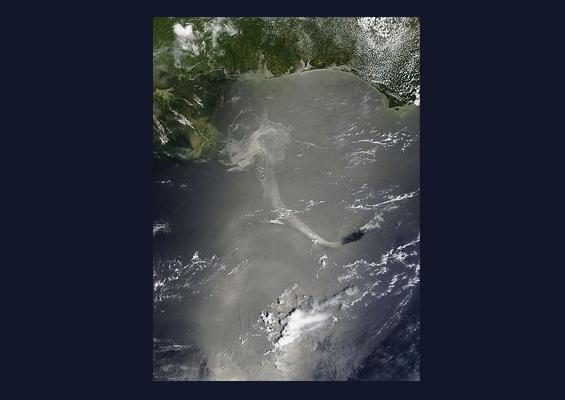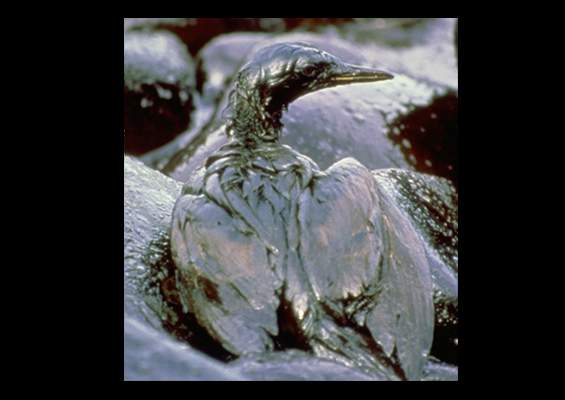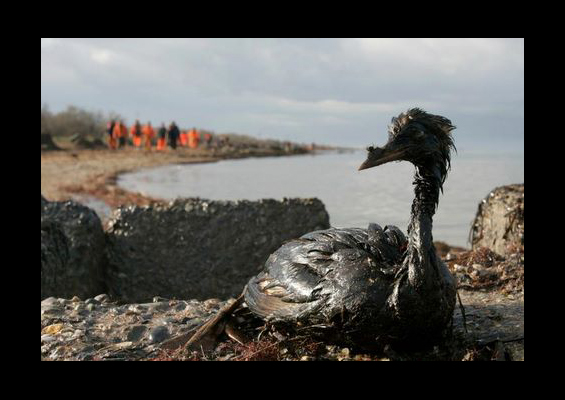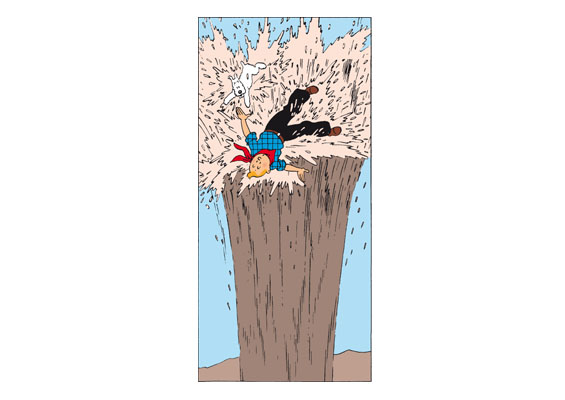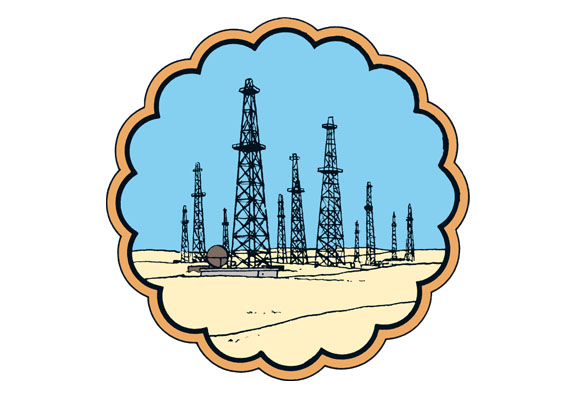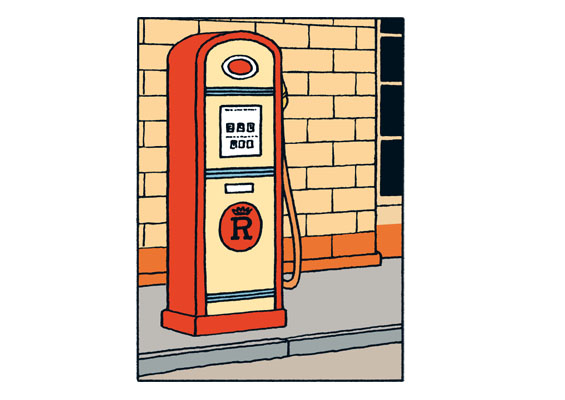Oil threatening life on earth !

The appalling ecological disaster currently unfolding in the Gulf of Mexico is not a one-off event. It calls into question the future of life itself, not only in the American Mediterranean Sea, but also throughout the entire planet. Read on to find out why.
An oil slick every year
While the oil spill off the coast of the USA is reported globally the media doesn't give the true global picture, failing to report what is going on off the coast of Somalia, in the Niger Delta and elsewhere. Working conditions and drilling standards in these places are generally below acceptable safety standards. Oil pours into the environment without anyone paying attention, creating what Time magazine calls 'an Exxon Valdez every year'. But what is Exxon Valdez? On 23 March 1989, an oil tanker owned by Exxon set sail from Valdez oil terminal, with full tanks. It struck Bligh Reef off the coast of Alaska at around midnight on 24 March, spilling 100,000 tons of crude oil into the sea. Just by checking the history of these events it becomes plain to see that the phenomena of oil pollution is nothing new and that it has global significance. Oil spills can happen anywhere and at anytime.
How can the scale of oil pollution be measured ?
On 20 April 2010 an explosion engulfed the platform of the oilrig Deepwater Horizon. The rig was on lease to BP (British Petroleum) and had been carrying out drilling in the oil-rich reserves about 40 miles off the Louisiana coast. Accurately judging the scale of the oil spill was hampered by repeated lies and misleading information coming from BP, and at the beginning it was estimated at between 2 to 3 million litres (1800 to 2700 tons) per day. Scientists and ecologists are able to use special computer software to measure levels of pollution; sadly, they are obliged to employ these programs more than ever these days. Aerial photographs are used to measure the surface area affected by the pollution. The affected area is then assessed in the following way: silvery reflections indicate a relatively low level of pollution (around 30 tons per hectare) while a darker colour is the sign of more serious pollution (up to 1700 tons per hectare). In the Gulf of Mexico, the colour of the affected area is extremely dark.
Is it possible to save birds that have been covered in oil ?
'Oiled birds? We have them coming in all year round.' The official from the Centre de revalidation pour oiseaux et animaux sauvages (Rehabilitation centre for birds and wild animals) in Ostend, Belgium, doesn't mince his words. 'It isn't only birds that fall victim to disasters like the one in the Gulf of Mexico. There are also many factors that contribute to pollution: every day the North Sea is polluted by ships that empty their tanks into the sea for various reasons, sometimes linked to smuggling. It is also important to realise that oil slicks don't just disappear by magic. Traces of the spills are still there to see years later. An oil slick floats and spreads with the current of the sea. It is not out of the question to imagine that in a few months a slick could appear off the coast of Holland, Belgium or France...' The rehabilitation centre takes in and looks after some 2000 birds every year, but it is not only oiled birds that are brought in: wild animals that have been hurt in road accidents or other calamities are also welcomed. To find out more, click www.vogelopvangcentrum.be. Despite the best efforts of the centre, the proportion of oiled birds that are actually rescued, cleaned up and then released back into the wild, remains low. Once a slick has spread it is already too late for most birds, which dive into the water to find food.

A major catastrophe for life on Earth
As an official representative of GAIA (Global Action in the Interest of Animals), Michel Vandenbosch is just as forthright as his assessment of the situation : 'The scandalous negligence of BP is already causing a global catastrophe. It is difficult to weigh the consequences for the long term. It is the whole question of our dependence on oil that should be posed (www.gaia.be).' 'And don't forget that off the coast of Europe there are some 400 oilrigs, roughly 200 of which are near Great Britain,' adds Arnaud Collignon of Greenpeace. 'The risk of major pollution along our coastline isn't just science fiction: it could happen at any moment. The real problem is that the oil companies (BP today, but yesterday it was Exxon, Shell and others) sacrifice the safety of their workers and the security of the entire World to make big profits straight away.' For more from Greenpeace, see 'www.greenpeace.org'. Oil slicks don't only affect birds. At this very moment hundreds of dolphins are dying in the Gulf of Mexico. Oil that sticks to the seabed kills plankton, the staple diet of many fish, which in turn die of hunger. The depletion of fish in the sea poses a serious risk to human life. BP is risking life on Earth !
Should mankind take all the blame ?
Between 1859 and 1968, the total oil consumed in the whole world was around 200 billion barrels. In 2010, the world is consuming just over 30 billion barrels of oil per year. In 1859, oil was mainly used as a source of light (oil lamps). The internal combustion engine, a major oil guzzler, had still not been invented. Today oil has myriad uses beyond the manufacture of petrol: it is used in the production of plastics, medicines and many other materials. For terrorists or armies at war, the temptation to sabotage oil wells is often too much. As previously mentioned, in the 1991 Gulf War the Iraqi army destroyed oil installations on purpose. They sabotaged a Kuwaiti oil terminal, Mina al Ahmadi, and set fire to 732 oil wells, resulting in over million tons of oil spilling into the ground and the sea. Many other things can cause these disasters including accidents at sea, damaged oilrigs, ships refilling and cleaning their tanks, and industrial accidents.

Tintin follows the oil story
The Adventures of Tintin reflect the importance of oil in the twentieth century. In the USA, Tintin witnesses first-hand the forced evacuation (backed by oil companies) of the Native American Indians from their land. He even gets showered in oil after unwittingly unleashing the pressure of a hidden oil well ! In the 1930s, cars and aeroplanes were being developed at an extraordinary rate. At the end of the 1940s, and during the 1950s, a new material - plastic - was taking the world by storm. The production of plastic relies on oil. Oil companies became immensely powerful. The adventure Land of Black Gold, with the sequence showing Müller sabotaging a pipeline, is an extremely topical story. At the time Hergé wrote it, there were already many pipelines sending oil from the Middle East or Russia towards the West, and various acts of sabotage made world headlines. Hergé's story paints a bleak picture of the collapse of the global economy, overly dependent on oil. Yet when we look back, who could have imagined that oil, so fundamental to human progress, would become our worst enemy ?




 News
News Forums
Forums E-books
E-books